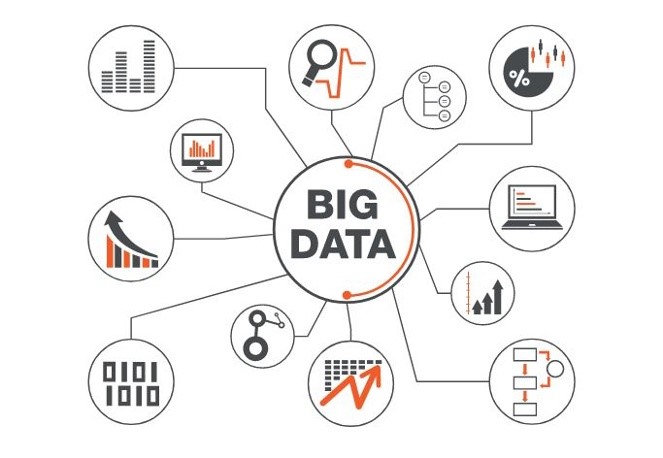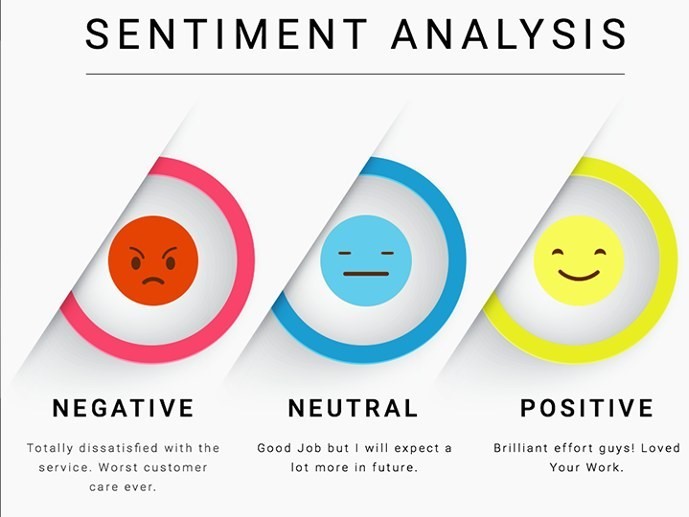
Why Natural Language Processing is the Future of BI
Let's take the example of Siri - Apple's very own virtual assistant – which not just responds to your voice commands by providing answers but even performs actions. It is just a small example of how the application of NLP has the potential to change the way we look at search.
Natural language processing is all about making computers understand queries in the human language - the language you and me speak - and also respond in our language.
Interestingly, NLP has come a long way in the recent past and today it has emerged as one of the major technologies to revolutionize search. Needless to say, enterprise search is one of the sectors that have immensely benefitted from the introduction of NLP. In fact, NLP has been instrumental in changing the face of Business Intelligence (BI) of late, as it becomes a lot easier to unravel the information hidden within the unstructured data with NLP.
What is Natural Language Processing?
NLP is also known as computational linguistics, is a technology that uses a combination of various concepts like Artificial intelligence (AI), semantic search, machine learning and linguistics to enable machines to interact with humans in the human language.
Looking a little deeper into how NLP works, we see that query processing in NLP works differently from that of conventional keyword search. While conventional search uses Boolean search terms - AND, OR and NOT - NLP uses semantic search to analyze the query whereby there are algorithms that understand the associations between the words and the possible intent behind the query to fetch intuitive results. In other words, NLP enables you to talk to a machine as you would talk to an individual. This is accomplished by understanding the query, converting it into Boolean, fetching the results and then converting them back into a language that the user understands.
Moving to the example of Siri, every time you speak to Siri, your voice query leads to the activation of a series of complex coding which enables the software to understand, process and provide a response to your query in a language you understand.
So, every time you ask Siri about the weather or ask her to book a cab to a specific destination, you now know that quite a complex process takes place in the background before Siri actually provides you with the required information or performs an action for you. The more time you spend using a smart device like Siri, the better it understands you as it captures the nuances of your style of communication, your likes, your preferences and so on.
The ultimate objective of Natural Language Processing (NLP) is to eliminate the need for a UI as users will be able to interact with computers just by talking to them. This transition can have a tremendous impact on the way people approach BI.
BI to Benefit from Increased Access to Big Data

Source: https://bit.ly/2Pcw1qj
Experts predict that there will be several implications of NLP on BI and one of the biggest implication will be democratization of Big Data. Democratization of data basically means increased access to data with the removal of barriers to data access. Data is now increasingly becoming more accessible than it ever was. The reason for this is the advanced search technologies that enterprises across the globe are embracing to unravel the information hidden within unstructured data, and NLP is playing a key role in it. After all, a major share of organizational data is unstructured data which cannot be analyzed and read using the conventional keyword based search approach. This is because keyword based search only works for data that is optimized and unstructured data is raw and non-optimized.
As NLP evolves, it will get easier and easier for enterprises to "read" and gather information from the ever increasing volumes of unstructured data and this is the ideal scenario for BI. The leading enterprise search platforms today are empowered by NLP. The application of NLP makes it possible to interact with computers without the need to type even a single word and this is referred to as 'queryless search'. Instead of the need to type a query, you can simply speak out your question to the device to get an answer.
Here's an example: When you need info about the profits for a particular year, you may simply ask, "What profit did the company make this year?" to a chatbot and get the answer. This way, you end up saving the time and effort required to type in a query and browse through the results and also anyone using the machine/software can be assured of getting the correct result.
Furthermore, the elimination of a GUI makes it easy to interact with the software on the go through voice commands.
BI to Turn Smarter with AI

Source: https://bit.ly/2EtzsnB
So, we have seen how the democratization of data brought in by BI can change the way we access data. Moving on, we shall look at another aspect of the contributions of NLP to BI and that is nothing but BI becoming more insightful. Right now, we have NLP making it possible to analyze the intent behind a query and we are moving towards a future where we shall witness NLP, with the use of AI technology, getting smarter in understanding our queries and giving us the accurate answer directly, instead of fetching a list of search results. So, it’s like a two-way communication with the chatbot that not just processes a natural language query but also provides an answer in the natural language.
BI to Benefit from Sentiment Analysis of Data

Source: https://bit.ly/2E5aoTM
NLP also makes use of the concept of sentiment analysis to decode the sentiment of unstructured data, and this will be immensely useful for enterprises in analyzing the sentiment of social media posts. Enterprises can use this technology to understand whether the tweets or Facebook posts about their business have a positive, negative or neutral sentiment, and this information can be immensely useful in understanding the market response to a product or the value people associate with a brand.
The Final Word
To sum it all up, we can safely say that the future is all set to provide enterprises with their very own virtual assistants to handle the research and analysis associated with BI. This is definitely big news for businesses because it will not just simplify the process of BI but also make it faster and more accurate. What do you feel the future of BI will be like? Do you have any points to add? Share your thoughts in the comment box below.